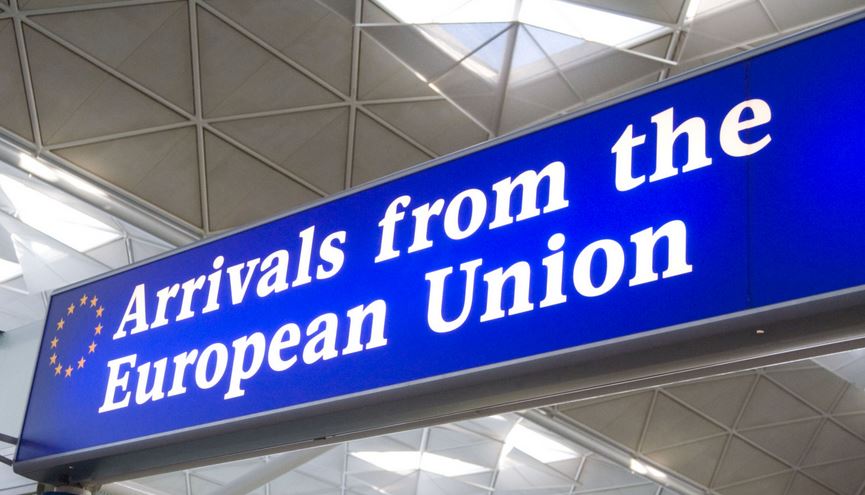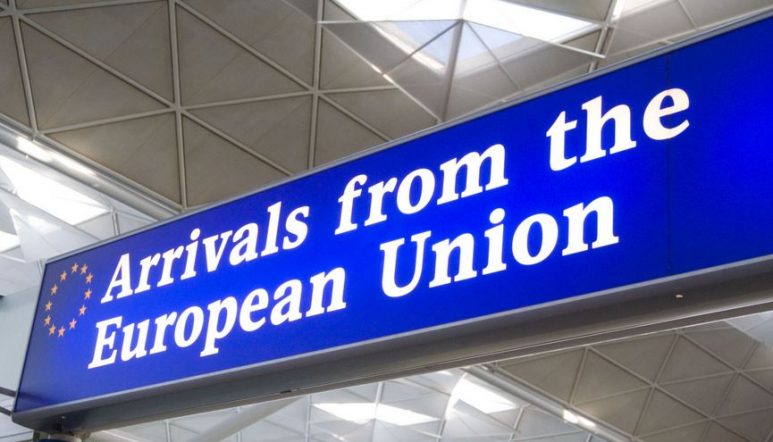Published: 2 December 2013
Country: UK
by Aidan White

 When UK Prime Minister David Cameron announced that his government intends to block the free movement of people from Romania and Bulgaria European leaders accused him of turning Britain into Europe’s “nasty country”.
When UK Prime Minister David Cameron announced that his government intends to block the free movement of people from Romania and Bulgaria European leaders accused him of turning Britain into Europe’s “nasty country”.
But while he has enraged normally docile Brussels bureaucrats, Cameron has delighted the country’s xenophobic tabloid press. In effect he has lit the blue touch paper for a period of renewed targeting of foreigners in Britain, particularly Roma people and thousands of migrants from the eastern fringes of the European Union.
The plan to limit the rights of migrants is an eye-catching populist move, but it threatens to wreck a central pillar of European Union policy and, more ominously, it runs the risk of unleashing a wave of racism fuelled by ever-more sensational media coverage.
Leading the charge is, predictably, the Daily Express which used the Cameron statement to proclaim victory in its campaign to prevent a “flood” of Romanians and Bulgarians from working in Britain. The paper has whipped up a frenzy among its readers and garnered 150,000 signatures after a month-long anti-migrant crusade.
 Both Cameron and the Express are playing on public fears of a mass invasion from the Black Sea region in the New Year when European law which guarantees freedom of movement across all EU borders comes into force for Romania and Bulgaria. But both are playing catch with their rivals.
Both Cameron and the Express are playing on public fears of a mass invasion from the Black Sea region in the New Year when European law which guarantees freedom of movement across all EU borders comes into force for Romania and Bulgaria. But both are playing catch with their rivals.
Cameron is following the lead of the UKIP party which earlier this year angered the Bulgarian ambassador in London with an outrageous anti-migrant election leaflet. And the Express’s main rival for bigoted journalism, the Daily Mail, proved in November that it is not beyond making up stories to feed its readers the editorial poison that will sustain growing anti-migrant sentiment within the public at large.
It sent reporters to two Romanian villages who produced a story saying that half of the 1,100-strong population in these poverty-stricken communities were ready to come to Britain.
But according to Private Eye magazine they were caught in a story of lies by some resourceful journalists working for the Romanian paper Adevarul. The newspaper, intrigued by the Mail story sent its own reporters to the villages to check the facts and found that the Mail had largely made up the story to fit the paper’s political bias. Unsurprisingly, the Mail has ignored this criticism.
Meanwhile, others are joining the bandwagon. Boris Johnson, Cameron’s rival for the affection of Tory voters, has joined the chorus against Romanian and Bulgarian workers and has been helped by the Evening Standard which made headlines out of the fact that a handful of East European beggars were spotted in Marble Arch.
Johnson’s message, laced with his familiar off-beat sarcasm, added fuel to the fire: “…we can do nothing to stop the entire population of Transylvania – charming though most of them may be – from trying to pitch camp at Marble Arch.”
This toxic mix of political opportunism and fast-and-loose journalism is likely to lead to more scare stories and increase anxiety within vulnerable and marginalised communities in the coming months.
The failure of journalists in the popular press to balance their coverage with a focus on the more prosaic truths about migration – that people coming to Britain make a net contribution to the national economy and that much of the country’s health and social services infrastructure would collapse if it were not for workers from abroad who largely keep it running — adds to the frustration of community leaders that the migration story is not being told either honestly or accurately.
But that is unlikely to change if the tabloid culture of news-making without context and a tendency towards bias and sensationalism stays in place.
However, this is not just a problem of unethical and politically-biased journalism, the story is fed by intemperate politicians who openly encourage a discourse that encourages a racist and bigoted narrative about life in Britain.
David Cameron may rightly be angry about the “nasty country” jibe but he and others in the mainstream of politics need to be careful about what they say and how they say it.
